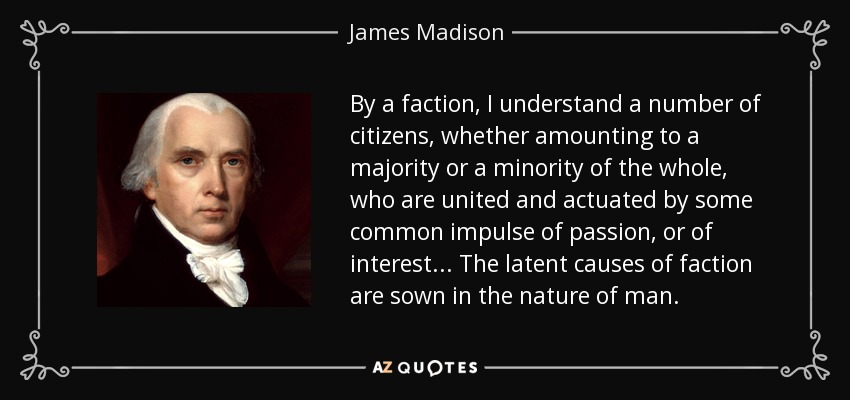James Madison’s Warning: Factionalism and the Danger of Division
Long before the era of modern political parties and social media echo chambers, one of America's Founding Fathers issued a prescient warning about the greatest threat to a democratic republic: our own human nature. In the Federalist Papers No. 10, written in 1787, James Madison pinpointed the toxic force of factionalism.
Madison defined a "faction" as a group of citizens, whether a majority or minority, united by a common interest or passion adverse to the rights of other citizens or the best interests of the community.
His core insight was brutally honest about human psychology. He wrote:
“So strong is this propensity of mankind to fall into mutual animosities that where no substantial occasion presents itself, the most frivolous and fanciful distinctions have been sufficient to kindle their unfriendly passions and excite their most violent conflicts.”
In modern terms, Madison was saying: We are hardwired to form tribes and turn on each other. This tendency is so powerful that even the most trivial differences—like supporting a different sports team or wearing a different colored ribbon—can be enough to spark "violent conflicts" if given the chance. Famous experiments, like the Stanford Prison Experiment, have tragically proven him right.
While these factions can form over many things, Madison identified the most "common and durable source" as the "various and unequal distribution of property." In other words, economic inequality is the primary fuel for lasting political division, creating a permanent class of "haves" and "have-nots" with opposing interests.
Madison’s proposed solution was not to eliminate factions, which he saw as impossible without destroying liberty itself. Instead, he argued for a large, diverse republic with a representative government. The idea was that by encompassing so many different factions, no single group could easily dominate the others, forcing compromise and cooling the passions of the majority.
Looking at today's polarized political landscape, it's clear this system is under immense strain. Madison’s warning serves as a timeless reminder: the greatest danger to a republic may not be an external enemy, but the internal, primal urge to break into warring tribes over the "most frivolous and fanciful distinctions."
Comments (Add)
Showing comments related to this blog.
